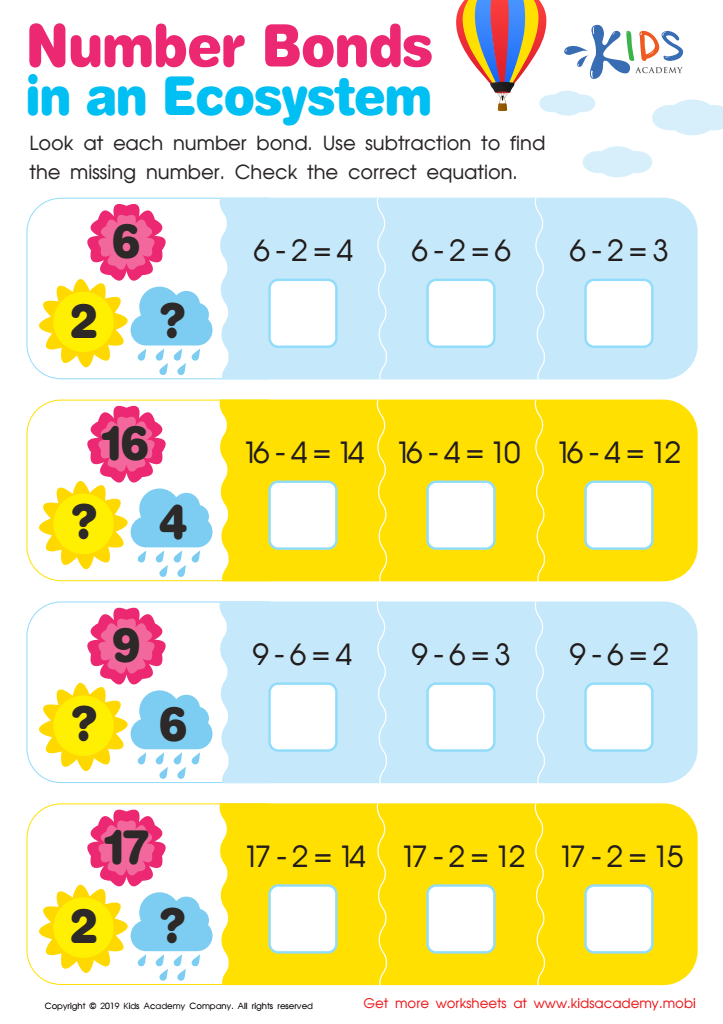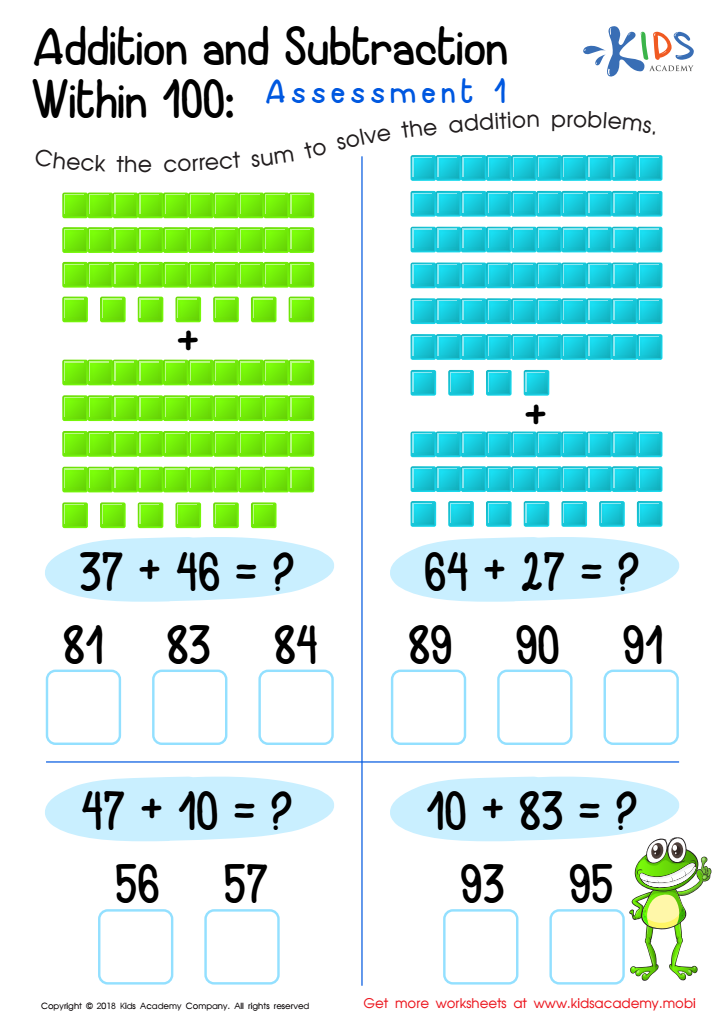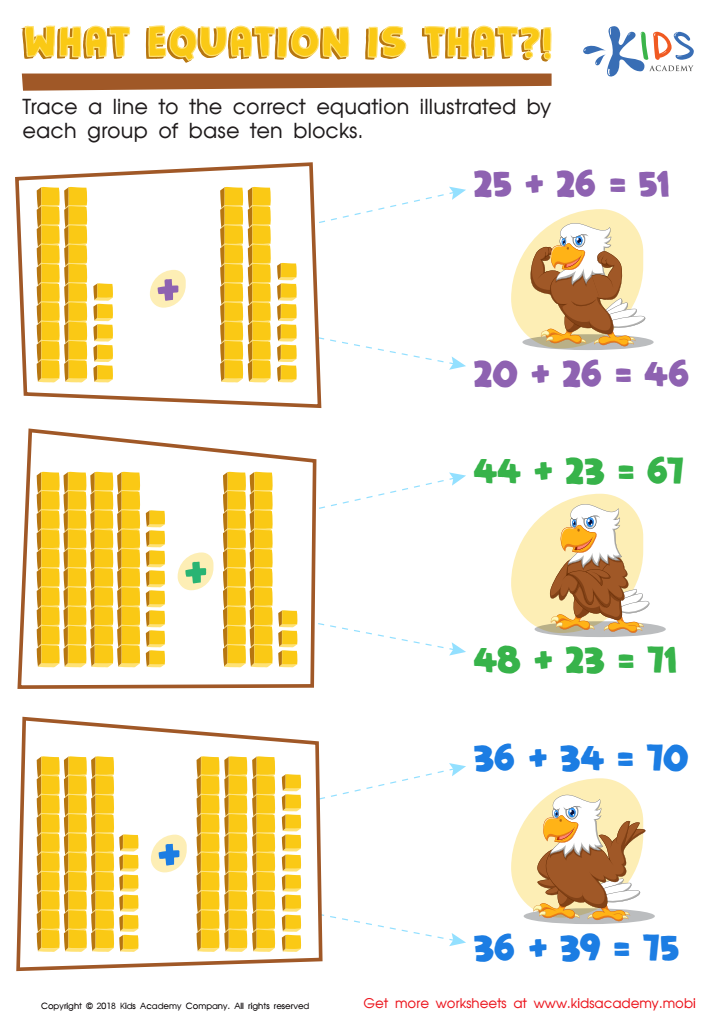Developing problem-solving abilities Math Worksheets for 7-Year-Olds
5 filtered results
-
From - To
Enhance your 7-year-old's critical thinking and analytical skills with our developing problem-solving abilities math worksheets. Specially designed to challenge young minds, these worksheets allow children to explore various mathematical concepts through engaging activities. Each worksheet focuses on practical problem-solving techniques, building a strong foundation in addition, subtraction, and basic geometry while making learning enjoyable. With our vibrant and interactive worksheets, your child will develop crucial problem-solving skills in a fun, supportive environment. Perfect for both home and classroom use, these resources ignite a passion for mathematics in young learners, paving the way for academic success.


Number Bonds in an Ecosystem Worksheet


Addition and Subtraction Within 1: Assessment 1 Worksheet


What Equation Is That? Worksheet
Developing problem-solving abilities in math for 7-year-olds is essential for several compelling reasons. Firstly, cultivating these skills lays a foundational understanding of basic math concepts, which supports more complex learning in the future. Math teaches children how to think logically and analytically, skills that are crucial not only in academic settings but also in everyday life. When children practice solving problems, they learn persistence and the importance of finding multiple approaches to a solution, leading to greater versatility in thinking.
Problem-solving in math also boosts confidence as children experience the satisfaction of finding solutions independently or collaboratively. This confidence extends to other subjects and areas of life, reinforcing a positive attitude towards learning and challenges. Additionally, working on math problems hones critical thinking skills, which are valuable beyond the classroom, aiding in decision-making and persuasive reasoning.
Moreover, solving math problems promotes the development of various soft skills, such as teamwork, communication, and patience, when tasks are done with peers. Lastly, early proficiency in math problem-solving can spark lifelong interest and competence in STEM-related (Science, Technology, Engineering, and Math) fields, equipping children with tools necessary for future success. Therefore, parents and teachers should prioritize this aspect of education to nurture well-rounded, capable individuals.


 Assign to My Students
Assign to My Students




















